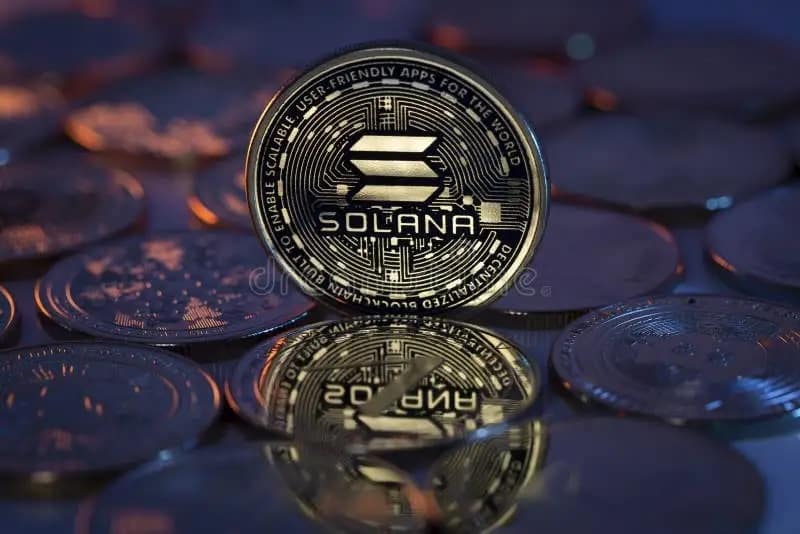
In the ever-evolving world of cryptocurrencies, Bitcoin and Solana stand as giants with distinct attributes. Bitcoin, renowned as the pioneer, focuses on digital gold, while Solana, a newcomer, emphasizes speed and scalability. This article delves into their key differences and implications for the crypto landscape. Want to explore more! Visit allin1bitcoins.com where you can learn about crypto projects, price prediction for your favorite crypto, trading bot review and investment guides and news. Must try!
Technology and Consensus Mechanism
Bitcoin, as the pioneering cryptocurrency introduced by the mysterious Satoshi Nakamoto in 2009, operates on a consensus mechanism known as Proof of Work (PoW). PoW relies on miners who participate in solving complex cryptographic puzzles to validate and add transactions to the blockchain.
This process involves substantial computational power and energy consumption, making it highly secure but resource-intensive. Bitcoin’s underlying technology, the blockchain, consists of a series of immutable blocks, linked together in a chronological chain. It is decentralized, with nodes distributed globally, ensuring the security and trustworthiness of the network.
Solana, in contrast, adopts an innovative approach to consensus known as Proof of History (PoH) coupled with a delegated Proof of Stake (dPoS) system. PoH serves as a historical record for transactions, creating an ordered sequence of events that enhances network scalability. The dPoS system involves validators who are elected to validate transactions and produce blocks.
This hybrid model significantly reduces energy consumption and enhances transaction throughput. Solana’s underlying technology utilizes a unique data structure called the “Solana Account Model,” which optimizes performance by allowing parallel processing of transactions.
While Bitcoin’s PoW ensures decentralization and security, it faces criticism for its energy-intensive nature. Solana’s PoH and dPoS offer rapid transaction speeds and scalability, making it attractive for decentralized applications. However, some argue that Solana’s consensus mechanism may compromise decentralization compared to Bitcoin’s robust PoW. These differing technologies and consensus mechanisms reflect the contrasting goals of Bitcoin as a digital store of value and Solana as a high-performance blockchain platform.
Transaction Speed and Scalability
Bitcoin, as the original cryptocurrency, has an average block time of approximately 10 minutes. This means that transactions on the Bitcoin network are confirmed roughly every 10 minutes. While this ensures the security of the network through the proof-of-work (PoW) consensus mechanism, it also results in slower transaction speeds. Additionally, Bitcoin’s transaction fees can fluctuate depending on network congestion, making it less suitable for microtransactions or applications requiring rapid transaction processing.
Solana, on the other hand, is designed with a strong emphasis on transaction speed and scalability. It boasts incredibly fast confirmation times, with block times as low as 400 milliseconds. This rapid transaction processing is made possible by the combination of the Proof of History (PoH) mechanism, which orders transactions efficiently, and the delegated Proof of Stake (dPoS) system, which allows for quick validation. Solana’s architecture is optimized for high-frequency transactions, making it ideal for applications in the decentralized finance (DeFi) and non-fungible token (NFT).
Scalability is another area where Solana excels. Its architecture is built to handle a high volume of transactions in parallel, making it well-suited for dApps that require a large number of simultaneous interactions. In contrast, Bitcoin’s scalability is limited by its block size and block interval, which can result in network congestion during periods of high demand.
Security and Decentralization
Bitcoin, being the pioneer of cryptocurrencies, is well-known for its robust security and high level of decentralization. These attributes are primarily a result of its consensus mechanism, Proof of Work (PoW). In the PoW system, miners compete to solve complex mathematical puzzles, which requires substantial computational power and energy expenditure.
This competition ensures that no single entity can easily control the network, making Bitcoin resistant to attacks and censorship. The decentralized nature of Bitcoin is further reinforced by its widespread network of nodes, which are distributed globally, contributing to network security and resilience. Over time, Bitcoin has gained a reputation as a secure and trustworthy store of value.
Solana, on the other hand, takes a different approach to security and decentralization. It employs a hybrid consensus mechanism consisting of Proof of History (PoH) and delegated Proof of Stake (dPoS). While this model offers high transaction throughput and energy efficiency, some argue that it may be less decentralized than Bitcoin’s PoW.
In the dPoS system, a limited number of validators are responsible for confirming transactions and producing blocks. Critics contend that this concentration of power among a select few may compromise the network’s decentralization and security compared to Bitcoin’s more distributed miner network.
Conclusion
In summary, Bitcoin remains the stalwart store of value, cherished for its security and decentralization. In contrast, Solana’s lightning-fast transactions and scalability make it an ideal platform for emerging decentralized applications. Both hold unique places in the crypto ecosystem, catering to diverse user needs.



